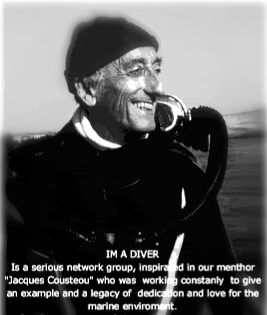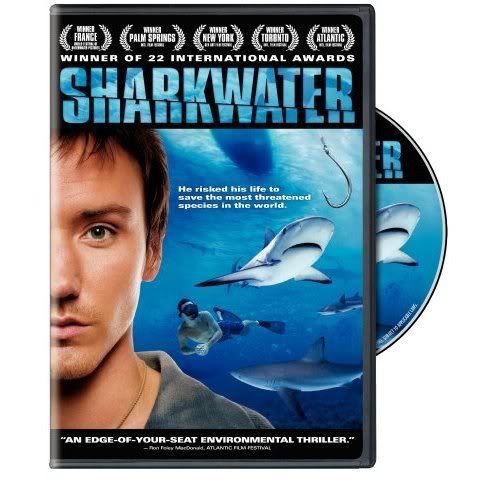
Captain Watson Responds to the Australian Newspaper Editorial
The Editor,
It seems that the Australian needs a lesson on the history of piracy, judging by the conniption fit of an editorial in the Australian today.
There is a reason that we adopted the Jolly Roger in response to our critics calling us pirates. We did it to embrace the accusation in a positive manner, and well, kids love the pirate image.
If we turn back the pages of history to the 17th Century we find that when piracy was running rampant in the Caribbean, it was not the British Navy that put an end to it. There was no shortage of British politicians, merchants and military officers taking bribes to look the other way.
Piracy in the Caribbean was ended by Henry Morgan, a pirate who was knighted for his efforts. His authority to intervene came after the act and not before it.
And like Morgan we are pirates motivated by justice in pursuit of pirates motivated by greed.
Other notable pirates in history who served the public well were Sir Francis Drake, Sir Walter Raleigh, John Paul Jones, and Jean LaFitte.
As to where we get our authority to intervene, that is a question easily answered. The United Nations World Charter for Nature allows for individuals and non-governmental organizations to uphold international conservation law. It is written in the Charter as plain as day.
We have been harassing the Japanese pirate whalers since 2002 without causing a single injury, without being charged with a single crime and without being sued. Pretty tame stuff for a bunch of bad pirates I would think. To compare us to a terrorist bombing a restaurant is absurd. Such a person would be charged with a crime for that action.
All I can say to our critics is either arrest us, sue us or shut up. Spewing opinionated drivel is hardly an indictment.
As for hunting whalers in foggy conditions all I can say is what better conditions could we have for approaching a poacher and catching them in an illegal activity.
The facts are that the Japanese whalers are targeting endangered whales in an established international whale sanctuary in violation of a global moratorium on whaling and they are doing so in contempt of an Australian Federal Court ruling specifically prohibiting whaling in the Australian Economic Exclusion Zone.
P.S. The proper spelling is whales not wales. This is not some patriotic separatist squabble this is about saving an endangered species.
Captain Paul Watson (On board the Steve Irwin off the coast of Antarctic)
There is a reason that we adopted the Jolly Roger in response to our critics calling us pirates. We did it to embrace the accusation in a positive manner, and well, kids love the pirate image.
If we turn back the pages of history to the 17th Century we find that when piracy was running rampant in the Caribbean, it was not the British Navy that put an end to it. There was no shortage of British politicians, merchants and military officers taking bribes to look the other way.
Piracy in the Caribbean was ended by Henry Morgan, a pirate who was knighted for his efforts. His authority to intervene came after the act and not before it.
And like Morgan we are pirates motivated by justice in pursuit of pirates motivated by greed.
Other notable pirates in history who served the public well were Sir Francis Drake, Sir Walter Raleigh, John Paul Jones, and Jean LaFitte.
As to where we get our authority to intervene, that is a question easily answered. The United Nations World Charter for Nature allows for individuals and non-governmental organizations to uphold international conservation law. It is written in the Charter as plain as day.
We have been harassing the Japanese pirate whalers since 2002 without causing a single injury, without being charged with a single crime and without being sued. Pretty tame stuff for a bunch of bad pirates I would think. To compare us to a terrorist bombing a restaurant is absurd. Such a person would be charged with a crime for that action.
All I can say to our critics is either arrest us, sue us or shut up. Spewing opinionated drivel is hardly an indictment.
As for hunting whalers in foggy conditions all I can say is what better conditions could we have for approaching a poacher and catching them in an illegal activity.
The facts are that the Japanese whalers are targeting endangered whales in an established international whale sanctuary in violation of a global moratorium on whaling and they are doing so in contempt of an Australian Federal Court ruling specifically prohibiting whaling in the Australian Economic Exclusion Zone.
P.S. The proper spelling is whales not wales. This is not some patriotic separatist squabble this is about saving an endangered species.
Captain Paul Watson (On board the Steve Irwin off the coast of Antarctic)
The above is a response to this editorial
EDITORIAL FROM THE AUSTRALIAN (30/12/2008) There is a photo on the ABC website of anti-whaling activist Paul Watson standing resolute beneath a skull-and-crossbones flag. The piratical point is of his making, not ours, but it says a great deal about the arrogance of a man who assumes his beliefs empower him to do what he likes on the high seas. And what Mr Watson likes to do is roister around the great Southern Ocean doing everything he can, short of deadly force, to stop Japanese whalers. He likes to confront his enemies, lobbing noxious cocktails at them. He likes to send boarding parties over their sides when he can. He claims to have sunk nine unmanned whalers over the years. Last week, he hunted a whaler in foggy conditions, something a skipper not looking for trouble would do.
Mr Watson argues he is only enforcing the law, taking it on himself to try and force Japanese whalers out of waters claimed by countries, such as Australia, that have banned whale hunting. But for all his self-righteous swashbuckling he needs to answer a question pirates never like: which state has commissioned him to enforce his own interpretation of the law? The answer is Australia hasn't. Mr Watson does what he likes and points to the carcasses of unnecessarily slaughter wales (yes that was how it was spelled in the editorial) to justify his actions. They don't.
Japan's annual whaling expedition has less to do with either pursuing scientific research or a food source than it does with the economic interest of a small number fishermen and the arrogance of a handful of bureaucrats who do not want the world telling them what to do. And Australia has been singularly unsuccessful in stopping the Japanese through the international forum that exists to regulate whaling. But none of this justifies individuals deciding their own conscience has the force of law. A terrorist who bombed a restaurant serving whale meat in Tokyo could claim the same desire as Mr Watson to save cetaceans from acts that are illegal in many countries.
But instead of being abhorred as an extremist, Mr Watson is a hero in parts of the press. Perhaps it is because he understands how too much of the media works and obliges lazy journalists who like to be handed dramatic photos and strong quotes without working for the story.
Perhaps many reporters sympathise with his cause. But in promoting him they do the anti-whaling cause no good. The Japanese will never surrender in the face of his thuggery, they will reduce, and ultimately en, whaling only by the force of arguments representing world opinion. And pirates speak for nobody.
Note: Captain Paul Watson is requesting that supporters send a note to the Australian voicing their opinion about this editorial. We need to let the newspaper know that we are tired of posturing and posing and supportive of real actions with real results.
Mr Watson argues he is only enforcing the law, taking it on himself to try and force Japanese whalers out of waters claimed by countries, such as Australia, that have banned whale hunting. But for all his self-righteous swashbuckling he needs to answer a question pirates never like: which state has commissioned him to enforce his own interpretation of the law? The answer is Australia hasn't. Mr Watson does what he likes and points to the carcasses of unnecessarily slaughter wales (yes that was how it was spelled in the editorial) to justify his actions. They don't.
Japan's annual whaling expedition has less to do with either pursuing scientific research or a food source than it does with the economic interest of a small number fishermen and the arrogance of a handful of bureaucrats who do not want the world telling them what to do. And Australia has been singularly unsuccessful in stopping the Japanese through the international forum that exists to regulate whaling. But none of this justifies individuals deciding their own conscience has the force of law. A terrorist who bombed a restaurant serving whale meat in Tokyo could claim the same desire as Mr Watson to save cetaceans from acts that are illegal in many countries.
But instead of being abhorred as an extremist, Mr Watson is a hero in parts of the press. Perhaps it is because he understands how too much of the media works and obliges lazy journalists who like to be handed dramatic photos and strong quotes without working for the story.
Perhaps many reporters sympathise with his cause. But in promoting him they do the anti-whaling cause no good. The Japanese will never surrender in the face of his thuggery, they will reduce, and ultimately en, whaling only by the force of arguments representing world opinion. And pirates speak for nobody.
Note: Captain Paul Watson is requesting that supporters send a note to the Australian voicing their opinion about this editorial. We need to let the newspaper know that we are tired of posturing and posing and supportive of real actions with real results.



